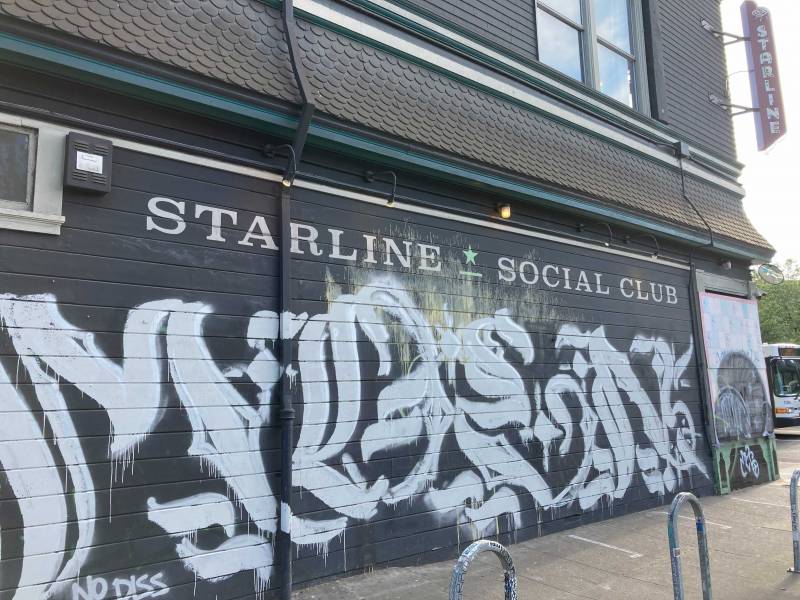The popular Oakland venue Starline Social Club was presumed to be gone forever. In October 2020, the owners announced they were selling both the building and the business, citing pandemic-related financial struggles. But on April 29, in a surprising reversal greeted by hundreds of excited responses on social media, a press release and Instagram post stated that the Starline would return in September—and what’s more, it would be converted into a worker-owned co-op.
The announcement included a video montage on Instagram, featuring Starline staffers dancing and having fun. The implication, it seemed, was that the bartenders, event producers and sound techs who brought the space to life were looking forward to the new model.
But in interviews, several staff members, most of whom had been laid off since March 2020, said they first learned about the announcement through social media and articles in KQED, SFGate and Eater. The owners had not communicated with them beforehand, despite proclaiming in the press release, “We are nothing without our team” and “The Starline will be in the hands of workers making it fly.” Many of the workers felt confused, angered and betrayed, and said the owners were using their likenesses to appeal to Starline’s progressive customer base. The announcement also prompted questions about the bar’s financial situation, and the kinds of risks workers could be asked to assume by becoming worker-owners of a struggling business.
“I was definitely blindsided and taken aback by it, and felt like it was more so for the publicity for the bar versus actual concerns about the staff and our wellbeing,” said Tayler Sampson, who worked as bar manager at Starline until she was let go in March 2020 because of the COVID-19 shutdown, and was briefly rehired in May and June of that year for the bar’s short-lived takeout operation. “If they were genuine about their posts, it’d be not one but multiple conversations with staff before going public about anything.”


